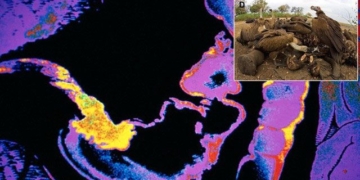 Global sea levels could rise by an additional 30 cm by the end of this century, and unusual weather patterns will occur more frequently due to rapid global warming.
Global sea levels could rise by an additional 30 cm by the end of this century, and unusual weather patterns will occur more frequently due to rapid global warming.
A new study from the Max Planck Institute for Meteorology in Hamburg, Germany, indicates that average global temperatures could increase by 4.1 degrees Celsius by the year 2100, leading to the melting of Arctic ice.
Project lead Erich Roeckner stated, “Our research shows that global temperatures are rising very quickly, altering regional climates. Summer climates in Europe will become hotter and drier, while winters will be warmer and wetter.”
This research from German scientists comes just days after American colleagues reported that Arctic ice has been continuously melting for four years due to rising temperatures, resulting in the smallest ice coverage in a century.
The majority of scientists believe that greenhouse gases, including carbon dioxide emitted from vehicles, are causing the Earth to warm under the sun’s heat.
Guy Brasseur, director of the Max Planck Institute for Meteorology, mentioned that their research aims to provide politicians with necessary information to implement measures to prevent adverse climate changes.
Brasseur warned that Europe will face more droughts and floods in the coming years. Reduced rainfall across southern Europe will negatively impact agriculture.
Klaus Toepfer, director of the UN Environment Programme, expressed great concern over the findings of this study and emphasized the urgent need for actions against climate change.




















































